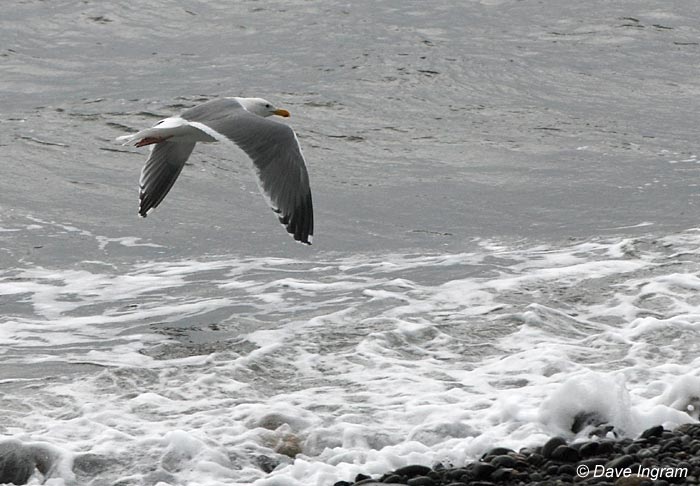I admit that I struggle with identifying gulls. Not only do you have to deal with four years of different plumages, you have to deal with hybrids as well. It can be extremely challenging and there are many opportunities to second guess yourself. In situations like those, sometimes it’s better to simply close your eyes, wait until the gull leaves, and pretend that you never saw it. More likely, you’ll mark it down in that catch-all category of “Gull species.”
What’s that Gull?!?
Today I was out at Miracle Beach Provincial Park enjoying the freshness of the day and the light rain. There were mostly what looked to be Glaucous-winged Gulls soaring on the wind. However, on the beach there was a gull that looked a little different. See if you can identify it from the photographs below keeping in mind that with gulls (or any other bird for that matter) a partial look at field marks is often all you get.
Sooo… are you ready to take a guess? Or do you need to see some more images with slightly better field marks?
Possibly a Western Gull?
If you identified this gull as a Western Gull (Larus occidentalis) I’m 99% certain that you’re right. That’s the conclusion that I came to – according to Sibley’s Field Guide to Birds of Western North America most of the field marks are in place: white, unmarked head (distinctive in winter when gulls aren’t in their breeding plummage), dark grey (in comparison with the lighter Glaucous-winged Gull) back or mantle with dark wingtips, and a heavy, yellow bill. For me, the bill of the Western Gull seems to be a little richer in colour when compared with the Glaucous-winged Gull. The eye colour is the only thing that doesn’t match the field marks exactly. Generally, the Western Gull has a lighter yellow/grey iris than the Glaucous-winged Gull’s light brown but the colour ranges from dark to pale.
That being said, I’d welcome a second opinion from those gull experts out there. Any chance to get a better handle on those complex “common” gulls is appreciated!




